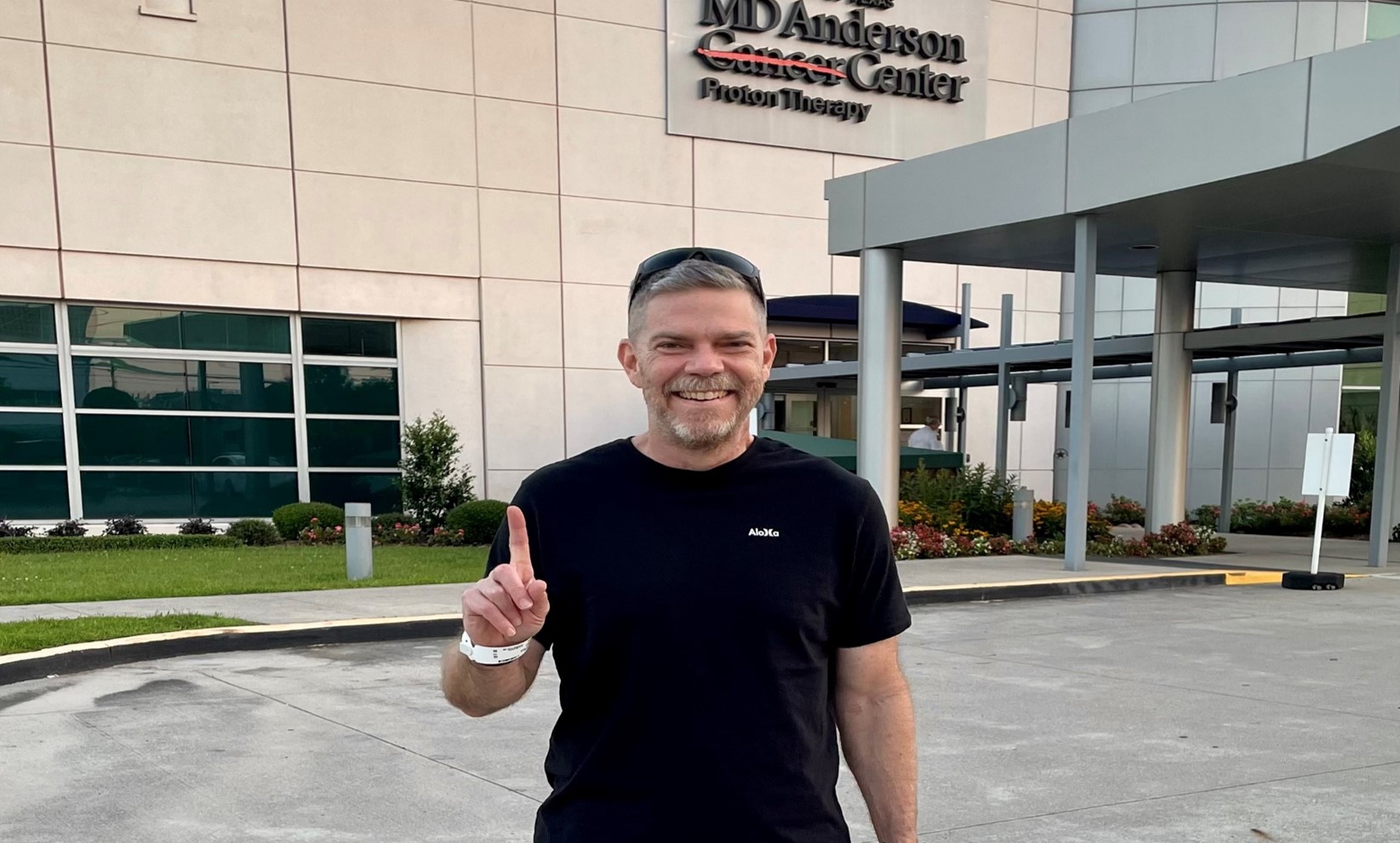- Diseases
- Acoustic Neuroma (14)
- Adrenal Gland Tumor (24)
- Anal Cancer (68)
- Anemia (2)
- Appendix Cancer (16)
- Bile Duct Cancer (26)
- Bladder Cancer (72)
- Brain Metastases (28)
- Brain Tumor (232)
- Breast Cancer (714)
- Breast Implant-Associated Anaplastic Large Cell Lymphoma (2)
- Cancer of Unknown Primary (4)
- Carcinoid Tumor (8)
- Cervical Cancer (160)
- Colon Cancer (166)
- Colorectal Cancer (118)
- Endocrine Tumor (4)
- Esophageal Cancer (44)
- Eye Cancer (36)
- Fallopian Tube Cancer (8)
- Germ Cell Tumor (4)
- Gestational Trophoblastic Disease (2)
- Head and Neck Cancer (12)
- Kidney Cancer (128)
- Leukemia (342)
- Liver Cancer (50)
- Lung Cancer (286)
- Lymphoma (278)
- Mesothelioma (14)
- Metastasis (30)
- Multiple Myeloma (100)
- Myelodysplastic Syndrome (60)
- Myeloproliferative Neoplasm (6)
- Neuroendocrine Tumors (16)
- Oral Cancer (100)
- Ovarian Cancer (172)
- Pancreatic Cancer (160)
- Parathyroid Disease (2)
- Penile Cancer (14)
- Pituitary Tumor (6)
- Prostate Cancer (146)
- Rectal Cancer (58)
- Renal Medullary Carcinoma (6)
- Salivary Gland Cancer (14)
- Sarcoma (238)
- Skin Cancer (296)
- Skull Base Tumors (56)
- Spinal Tumor (12)
- Stomach Cancer (64)
- Testicular Cancer (28)
- Throat Cancer (92)
- Thymoma (6)
- Thyroid Cancer (98)
- Tonsil Cancer (30)
- Uterine Cancer (82)
- Vaginal Cancer (18)
- Vulvar Cancer (20)
- Cancer Topic
- Adolescent and Young Adult Cancer Issues (20)
- Advance Care Planning (10)
- Biostatistics (2)
- Blood Donation (18)
- Bone Health (8)
- COVID-19 (362)
- Cancer Recurrence (120)
- Childhood Cancer Issues (120)
- Clinical Trials (632)
- Complementary Integrative Medicine (22)
- Cytogenetics (2)
- DNA Methylation (4)
- Diagnosis (232)
- Epigenetics (6)
- Fertility (62)
- Follow-up Guidelines (2)
- Health Disparities (14)
- Hereditary Cancer Syndromes (126)
- Immunology (18)
- Li-Fraumeni Syndrome (8)
- Mental Health (116)
- Molecular Diagnostics (8)
- Pain Management (62)
- Palliative Care (8)
- Pathology (10)
- Physical Therapy (18)
- Pregnancy (18)
- Prevention (920)
- Research (392)
- Second Opinion (74)
- Sexuality (16)
- Side Effects (606)
- Sleep Disorders (10)
- Stem Cell Transplantation Cellular Therapy (216)
- Support (402)
- Survivorship (322)
- Symptoms (182)
- Treatment (1786)
Throat cancer survivor chooses clinical trial to ‘help someone else'
4 minute read | Published November 08, 2016
Medically Reviewed | Last reviewed by an MD Anderson Cancer Center medical professional on November 08, 2016
Chuck Caldwell was in Europe with his wife in September 2015 when his throat started bothering him. At the time, he chalked up the soreness to allergies or drainage and didn’t give it much thought.
But when Chuck got back to Houston later that year, he started feeling lightheaded, and the pain in his throat began radiating up into his ear. A few days before Christmas, Chuck finally saw his doctor, who used a scope to examine him.
The news was not good. “I asked him if it was throat cancer, and he was almost positive it was,” Chuck says. “But he also thought it was fixable, and said he was going to refer me to the No. 1 guy in the U.S.: his brother.”
Choosing a clinical trial to help others
“That guy” turned out to be MD Anderson’s Randal Weber, M.D., and Chuck got an appointment with him during the first week of 2016.
Weber confirmed the throat cancer diagnosis and recommended a treatment plan of radiation and chemotherapy. G. Brandon Gunn, M.D., Chuck’s radiation oncologist, asked if he would consider a proton therapy clinical trial. The 77-year-old didn’t hesitate.
“It sounds kind of Pollyanna, but if it will help someone else down the line, I would always do it,” Chuck says. “It’s worth it and a small price to pay.”
A risk that paid off
Chuck’s only real concern was the possibility of not receiving proton therapy. As a clinical trial participant, Chuck knew that a computer would randomly determine whether he’d receive standard radiation or proton therapy, and he really wanted the latter.
“My wife and I both work, and if I’d gotten regular radiation, I would have had to go between 8 a.m. and 5 p.m., which is a hardship,” Chuck says. “But the MD Anderson Proton Therapy Center is open around the clock, so we could go there between 8 and 11 p.m. Also, MD Anderson is one of only about 24 places in the U.S. that offer proton therapy, and it’s the only one in Houston. This clinical trial wouldn’t have been an option anywhere else close by.”
As it turns out, the computer placed Chuck in the proton therapy group. On Feb. 8, he began receiving proton therapy five days a week under Gunn and chemotherapy once a week under Merrill Kies, M.D. He rang the gong in the Proton Therapy Center to mark the end of his treatment on March 29, and has shown no evidence of disease since then.
“Everything worked out super,” Chuck says.
Side effect has unintended benefit
For Chuck, the most discouraging part of his cancer experience has been losing his sense of taste. That happened 15 days into his treatment, and it still hasn’t returned.
“I’m not much of a pie and cake person, but I can eat my weight in ice cream,” Chuck says. “Now, rocky road tastes like mud. Going through cancer treatment isn’t much fun, but if you had something to look forward to, like a meal, it wouldn’t be so bad. It gets to where you just don’t want to eat.”
Not being able to taste anything has had one unexpected benefit: since starting treatment, Chuck has dropped almost 60 pounds.
“I needed to lose weight, but that was kind of a hard way to do it,” Chuck says. “I think I was born weighing 125. Now I’m wearing clothes I haven’t worn in 30 years. And I can breathe much more easily.”
Staying positive and spreading the word
Today, Chuck considers himself fortunate.
“My sense of taste is still coming back gradually, and the doctor said it could take up to a year,” Chuck says. “But I’m OK with that. During treatment, every time I started feeling sorry for myself, I’d walk around the hospital and see babies with no hair or people with half a face. That brought everything back into focus. There was an end to my ordeal, and the odds were really good that I was going to get well.”
He also remains one of MD Anderson’s biggest fans.
“I don’t understand why anyone with a cancer diagnosis would go anywhere but MD Anderson,” Chuck says. “It would be hard for anybody to compete with this operation. The doctors are superb. The nurses are outstanding, and they have more clinical trials than anyone else. Everybody there makes you feel like you’re their only patient.”
Related Cancerwise Stories

I don’t understand why anyone with a cancer diagnosis would go anywhere else.
Chuck Caldwell
Survivor





